What You Need to Know About High-Protein Diets and Weight Loss
The diet world is always abuzz demonizing certain foods while putting others up on a pedestal. For years, we heard that fat was bad then the tide turned to carbs and meat.
Lately, I’ve heard a lot about high-protein diets. I’ve heard some pretty extreme claims and recommendations that go way above and beyond the body’s proteins needs. Products are popping up left and right with added protein, you can find protein pancake mixes, waters, cookies, breads, and even cereals.
So, what’s the truth about a high-protein diet and weight loss? How much protein should we be aiming for each day? What are the benefits of adding extra protein? Is there a risk for eating too much protein? Let’s dig in!
Facts About Protein
Protein is an essential macronutrient and has very important roles for growing and maintaining muscle mass. Beyond that, protein is key for healthy bones, cartilage, skin, hair, and more. Protein is made of amino acids, which are necessary for your body to function properly.
Protein’s Key Roles:
- Cell Growth & Repair
- All body proteins need to be replaced every 3-4 months, muscle cells are always being broken down and remade.
- Regulate Body Functions
- As enzymes & hormones, such as insulin and glycogen to help maintain normal blood glucose levels, or L-arginine which helps keep blood vessels open.
- Defense against bacteria and injury such as a healthy skin barrier or assisting with blood clotting and immune health.
- Help muscles contract so you can move, and your heart can beat.
- Transport carriers such as hemoglobin carrying oxygen in the blood.
- Provide Energy
- Protein provides 4 calories per gram and can be converted to glucose for fuel for the body and brain.
Food Sources of Protein
Protein can be found in animal and plant foods. Many people think of animal protein when they think about adding more protein, but plant-based protein offers many benefits and is a very healthy choice.
Protein is found in high amounts in foods like:
Beef, pork & other red meats (~8 g/oz)
Poultry (~8 g/oz)
Fish & Shellfish (~7 g/oz)
Dairy Products (~7 g/8 oz)
Eggs (~6 g/large egg)
Tofu and other soy products (~ 9 g/½ cup tofu/edamame, ~7 g/cup soymilk)
Beans, Nuts & Seeds (~8 g/½ cup)
Protein is also found in vegetables and whole grains in smaller amounts.
Does the Type of Protein Matter?
Just like there are healthy carbs and not-so-healthy carbs and good and bad fats, research is showing that the types of protein you choose makes a difference.
Opting for plant-based and lean proteins over high-fat animal proteins is recommended as it can:
- Reduce saturated fat intake
- Provide anti-inflammatory benefits
- Increase intake of different phytonutrients
- Positively impact heart health, risk for diabetes, and cardiovascular mortality
Research suggests that protein type is critical in determining the benefits of a higher protein diet. High-protein diets can be very different in their health impacts. But studies have found that increasing intake of plant-based proteins positively shifts the quality and health benefits.
Protein and Weight Loss
The truth is…an excess of calories from any source can impede weight loss and whether you consume high-protein foods or not, you can lose weight. If calories are controlled, weight loss is comparable between different types of diets. Whether you can maintain said diet and if it is a healthy diet is a whole different blog post, but studies suggest that weight loss from a high protein diet isn’t generally maintained beyond the first year.
However, protein does offer some unique benefits when it comes to weight loss. So, if you are hoping to reach a healthier weight it would not be wise to skimp on protein.
Eating more protein, while controlling total calories, has been found to aid weight loss for a couple different reasons. First, enough protein helps to preserve muscle mass which prevents metabolic slowdown which often occurs with weight loss. It also is thought that it may help to decrease ghrelin (the hunger hormone) and increase peptide YY and glucagon-like peptide (GLP-1) which promote the feeling of fullness.
Beyond this, diets with adequate protein have been found to help reduce food cravings. Overall, the impact of all of this could, in turn, reduce other weight-related issues such as diabetes and heart disease.
How Much Protein Do I Need?
According to the Dietary Guidelines for Americans, the diet should have 10-35% of its total calories from protein (Seattle Sutton’s Healthy Eating meal plans average 23% of calories from protein). The RDA for minimum daily protein is 46 grams for adult men and 56 grams for adult women.
The Institute of Medicine recommends adults get a minimum of 0.8-1 grams of protein for every kilogram of body weight daily. For example, if you weigh 150 pounds (or 68 kilograms), the recommendation would be between 55-85 grams per day.
Inadequate protein intake is not a concern in the US, in fact, most Americans eat more protein than recommended. It is estimated that most Americans consume more than 2 times the recommendation.
In general, it is not recommended to eat more than 2 g of protein per kilogram of body weight. I have had people tell me they were recommended to consume 2 grams of protein per pound of body weight which is significantly higher than these guidelines. For the same 150-pound person above that would be 300 g of protein per day (or 1200 calories of protein per day). This is concerning because it would crowd out other important nutrients in their diet but would also be extremely hard to achieve (that’s 100 grams per meal!). I will discuss the risks of consuming too much protein below.
A high-protein diet is usually considered any intake that is above 25-35% of calories from protein. The Mayo Clinic suggests that excessive protein would be an intake of more than 2 grams per kilogram of body weight.
Benefits of Increasing Protein
As discussed above, there are some benefits of increasing your protein when it comes to weight loss including preserving lean body mass and promoting fullness and controlling hunger.
In combination with regular exercise and strength training, getting enough protein can help to reduce sarcopenia (age-related skeletal muscle loss) and improve bone health and reduce the risk for fractures. This could lead to more independence and strength with aging.
A higher-protein intake may help with glycemic control when combined with a balanced diet that factors in calories, fats, and carbohydrates. The National Institute of Diabetes and Digestive and Kidney Diseases (NIDDK), recommends following protein recommendations, however, to avoid high-protein diets, which emphasizes that higher-protein doesn’t necessarily mean anything extreme.
Risks of Too Much Protein
If weight loss is your goal, it is important to remember that your body doesn’t store excess protein. Instead, your body breaks it down for conversion to body fat. It can also be transformed into glycogen for energy storage. This process releases nitrogen-containing components which must be removed and excreted through the kidneys which is a problem if you are at risk for or have a diagnosis of kidney disease.
In susceptible people, too much protein can also lead to kidney stones. Too much non-dairy animal protein, especially without eating plenty of fruits and vegetables, can increase urine acid and increase the risk of kidney stones in some people.
There is also concern that too much protein could lead to changes in liver biomarkers and reduce bone density as it increases calcium loss. In addition, if you are not choosing the right types of protein, it could increase the risk for heart disease or colon cancer.
Signs you may be eating too much protein include:
- Intestinal Discomfort
- Constipation
- Bad Breath
- Headaches
Bottomline About High-Protein Diets and Weight Loss
If excess protein contributes to excess calories, weight loss may be hard for you to achieve. That’s not to say that you shouldn’t focus on more protein, as eating enough does offer benefit for the body and overall health.
For weight loss, it is generally recommended that as calorie intake decreases your intake of protein foods should not decrease with it. The average American adult consumes between 15-16% of their calories from protein and we have seen that exceeding 35% recommendation does carry risks. Aiming between 20-35% of calories from protein may be an ideal goal to provide room in the diet for healthy carbs and fats and being maintainable for long-term health.
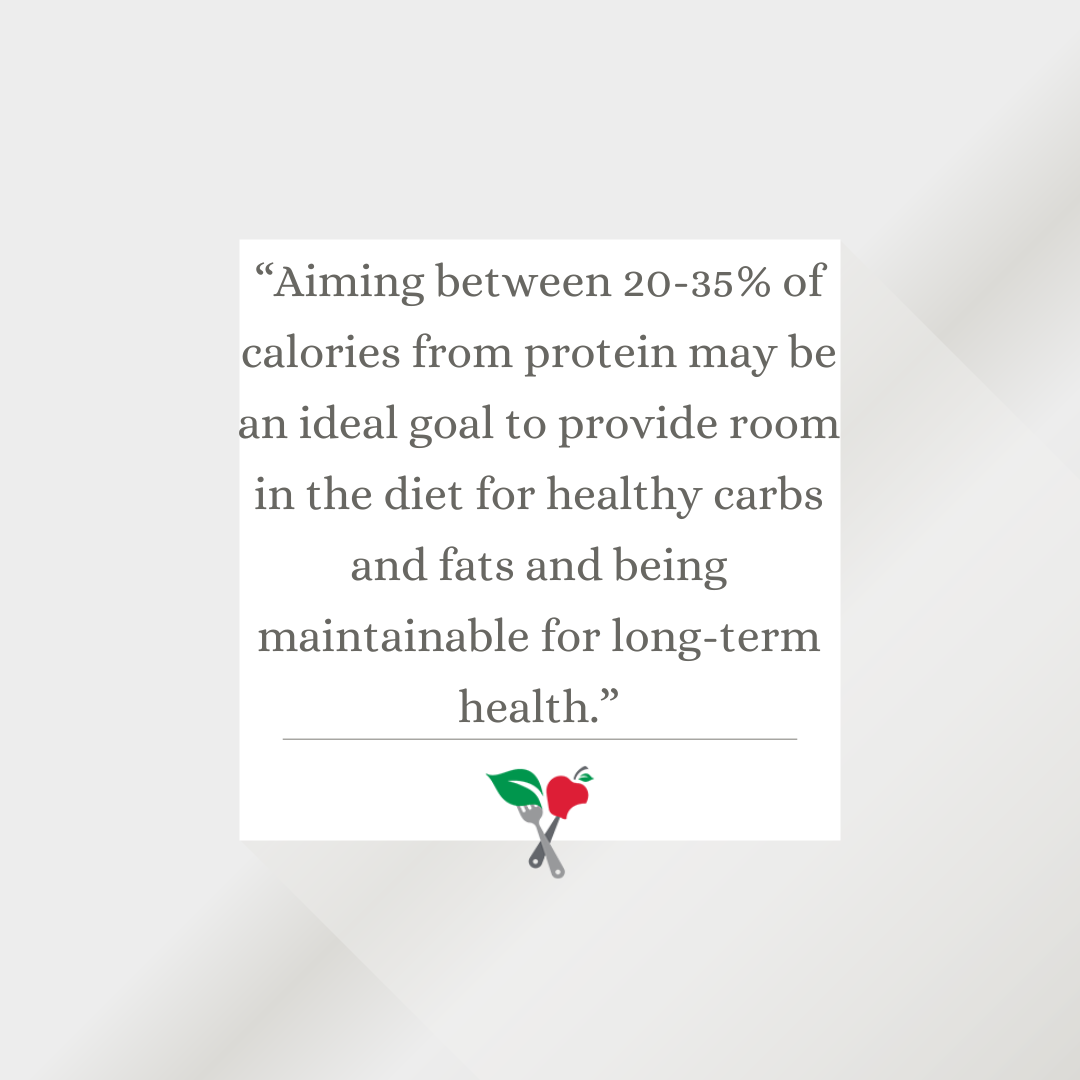
When looking at the protein in your diet be sure to remember to:
- Focus on more plant-based proteins and lean sources of animal proteins.
- Choose more WHOLE proteins instead of protein-enhanced foods which can be highly processed and contain unhealthy ingredients such as artificial flavors/colors and higher amounts of sodium and added sugars.
- Look at the entire nutritional package of a certain food rather than just focusing on its macros.
- Introduce new foods including different beans, nuts/seeds, grains, and dairy products to promote variety
- Don’t forget…total calories matter!
Focusing on a healthy, balanced diet provides many benefits, beyond weight loss. Including adequate amounts of protein and a good variety of protein foods is key! Cooking and meal prepping for a protein-rich diet can be confusing and time consuming. Let Seattle Sutton’s Healthy Eating simplify this process with our delicious, time-saving meal plans.


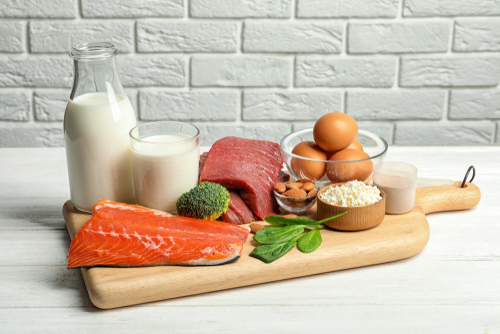
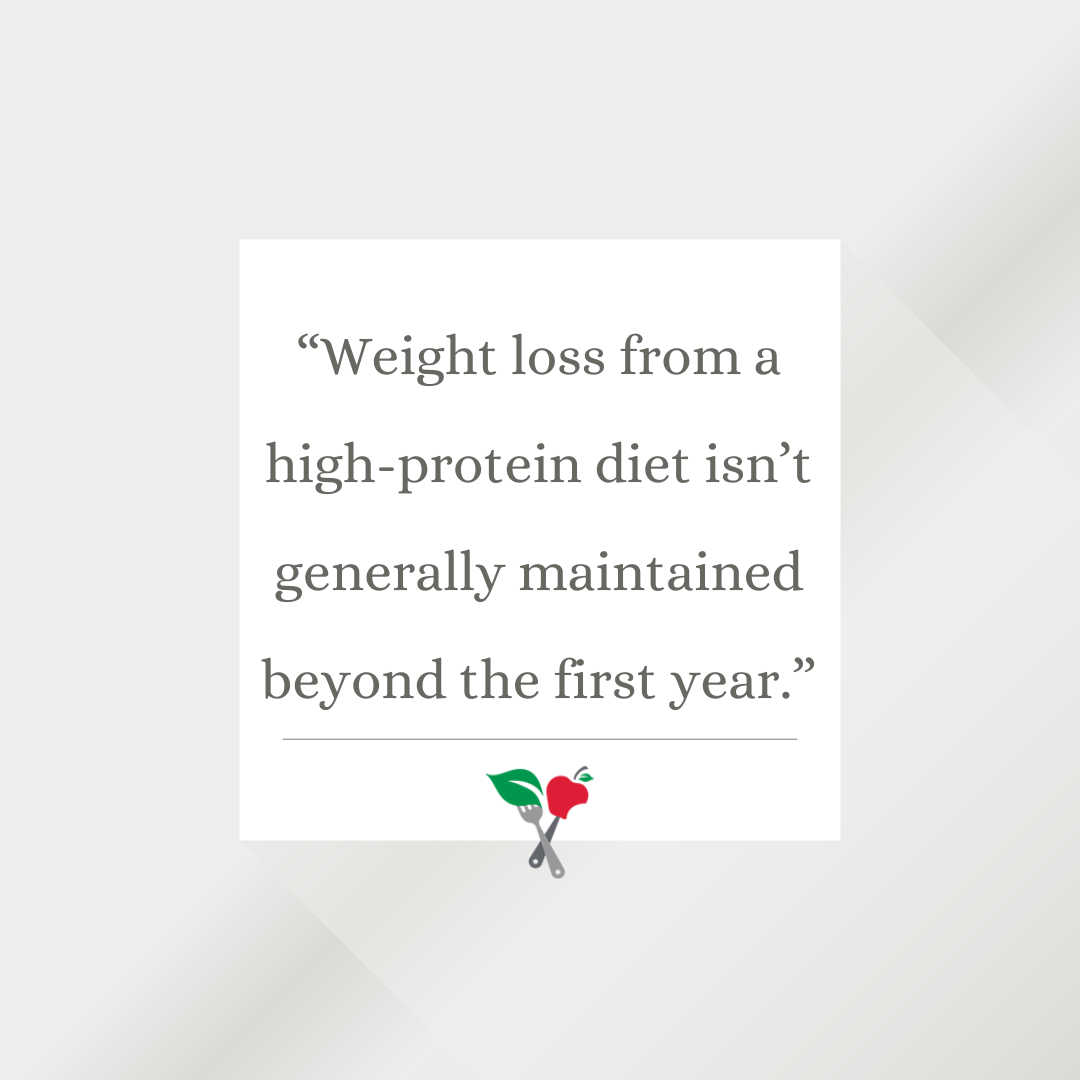
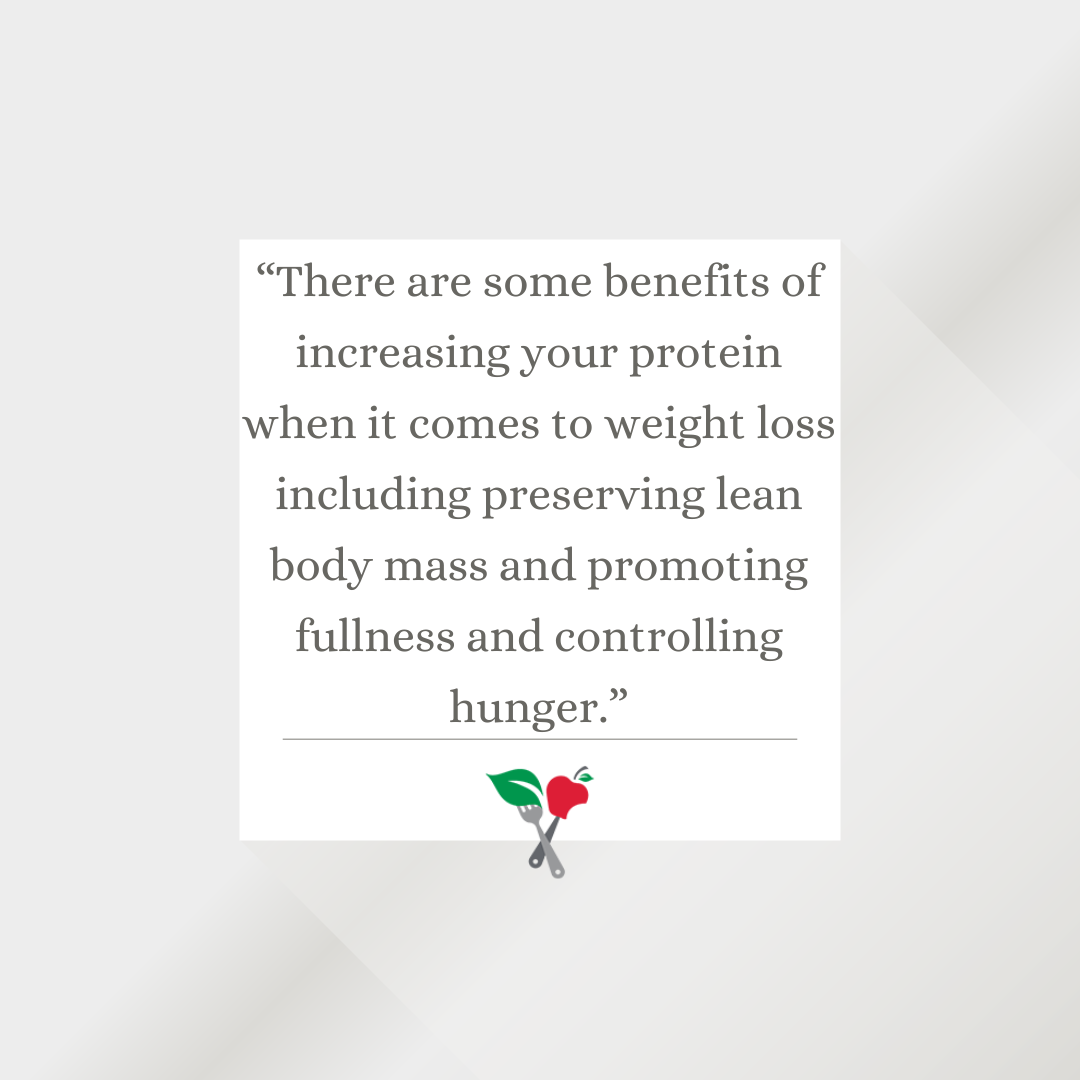



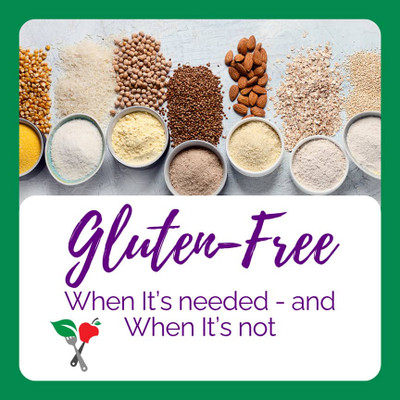

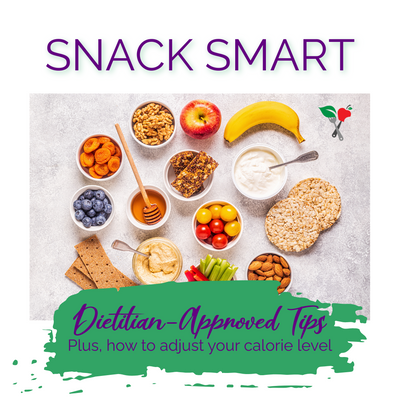
 Weight Loss
Weight Loss Health & Wellness
Health & Wellness Diabetes
Diabetes Heart Health
Heart Health Motherhood & Family
Motherhood & Family Dietary Restriction
Dietary Restriction Other Health Conditions
Other Health Conditions About SSHE
About SSHE


